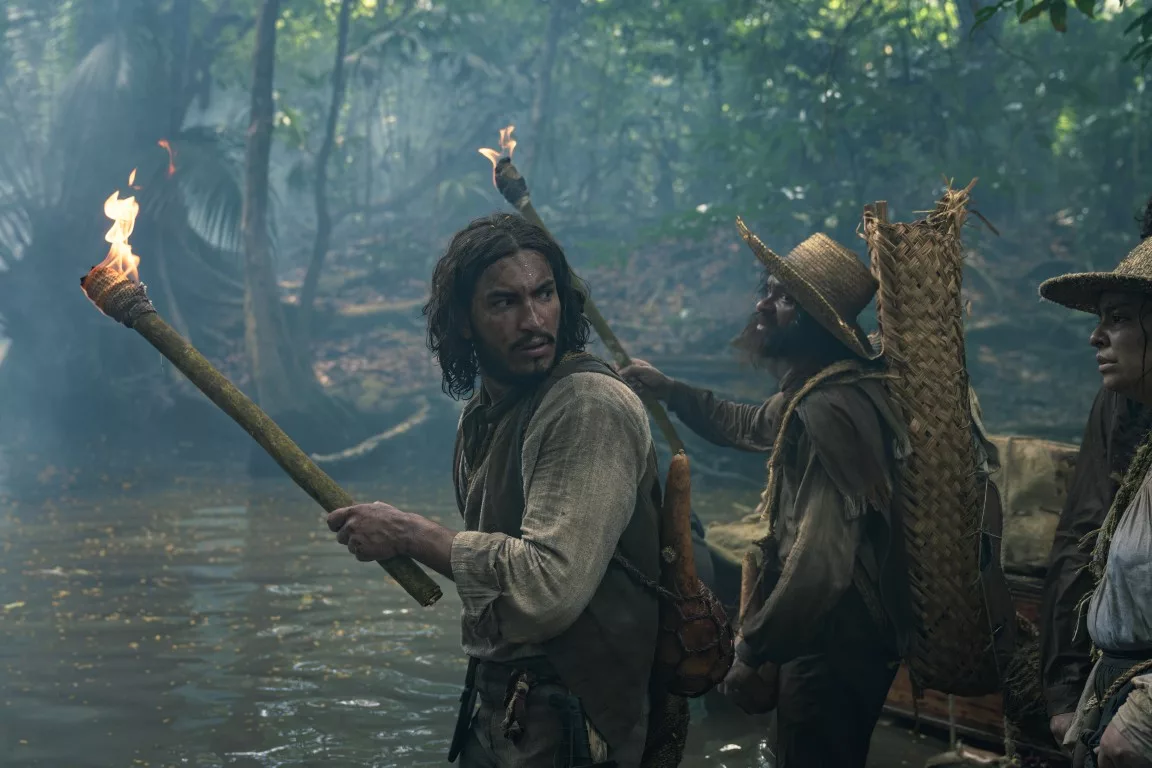Gabriel García Márquez’s 1967 epic novel, Cien Años De Soledad ,One Hundred Years of Solitude), is similar to the Latin American canon moby dickIt earned the Colombian author the Nobel Prize in Literature in 1982 and is widely acclaimed as one of the most influential works of its era.
I first read it in college (in Spanish, of course) and was stunned by how it introduced magical realism, depicting Colombian history through the fictional town of Macondo, and over time through the Buendía family. Showed change. So when Netflix announced they were adopting it, I was cautiously optimistic.
There are a lot of challenges in tackling a work with this level of respect, especially one that has the vast timeline of this novel (seven generations of Buendías) and that requires a lot of special effects. Thankfully, the streamer Was stingy in telling Selena’s story It appears he spent top dollar on his “One Hundred Years of Solitude” adaptation.
This show is downright decadent. Magical realism can be tricky on screen, but it’s handled beautifully here, mixing the otherworldly with everyday life to create a fantastic Macondo full of mystery, sex and despair. The first season spans eight one-hour episodes and covers the first third of the book – after all, a hundred years is a long time. There are some issues with the pacing, and the episodes sometimes drag in the middle. And sometimes the characters, especially matriarch Ursula Iguarán (Susana Morales as the younger and Marleda Soto Ríos as the older) and patriarch José Arcadio Buendía (Marco González and Diego Vásquez), come across more as role models than as people. Come forward.
But overall, Netflix’s Macondo is a deep and rich setting that’s beautiful to behold. The costumes are gorgeous, the sets are evocative, and the special effects are a delight. Virtually every expense is spared, from earth-shaking creatures to apparitions to insomniacs, this production spares no expense, transporting the audience to a more dense and compelling Macondo than I could have imagined.
This is a testament to the power of filmmaking.
But there’s no escaping the fact that this rich world is part of Marquez’s twisted mind. He may have been a literary hero, but the man had harmful ideas about sex and gender. His work consistently glamorizes the type of male privilege that powers sexual relations and sexual exploitation of minors.

In the Netflix adaptation, we see this dynamic between adult Colonel Aureliano Buendia (Claudio Caetano) and his chosen partner, Remedios Moscote (Crystal Aparicio). Yes, he chooses a girl who hasn’t even reached puberty yet to be his wife, and the show (and the novel) portrays her as the purest, happiest woman (she is a girl). Remedios is too good for this world and dies in pregnancy, giving the Colonel more depth as a widower. It’s gross, and it’s not a product of its time. The couple’s parents are initially vilified, showing how the couple’s relationship broke down in the fictional past and in the author’s time. Still, they find a way to make it work and make their “love” romantic.
And this isn’t the only example – Arcadio (Jenner Villarreal) finds his partner this way. When he tries to rape his mother, Pilar Ternera (Vina Machado – at least he doesn’t know she is his birth mother), Pilar goes to Arcadio’s bedside in his stead in Santa Sofia de Pays La Piedad (Johanna Angulo). And Santa Sophia stops there without the chain and gives us a hint of its logic. It is just an object to be used.
Then, in a gender reversal, Pilar has children with both Buendia boys. Despite this being flirtatious (they are boys, and she is an adult), the show portrays their pairing as exciting and romantic.
This is disappointing, especially in 2024, when our box office is dominated by “Wicked” and Percival Everett’s reimagined setting of the Wicked Witch of the West. jamesRetelling Mark Twain’s story adventures of huckleberry finn From the perspective of the already enslaved Jim, won the national book award,
But here we are, with a great, straight-up adaptation of the problematic “One Hundred Years of Solitude.” Filmmakers Laura Mora and Alex García López clearly have great reverence for this work, and perhaps needed this literal translation to demonstrate that. We’ve certainly never seen Macondo like this. And yet, I can’t help but wish that the conversation about what it means to be Latin American or part of its diaspora had moved beyond 1967. Obviously, we’ve got big budgets and flashy storytelling tools, but we haven’t got much more to say.

